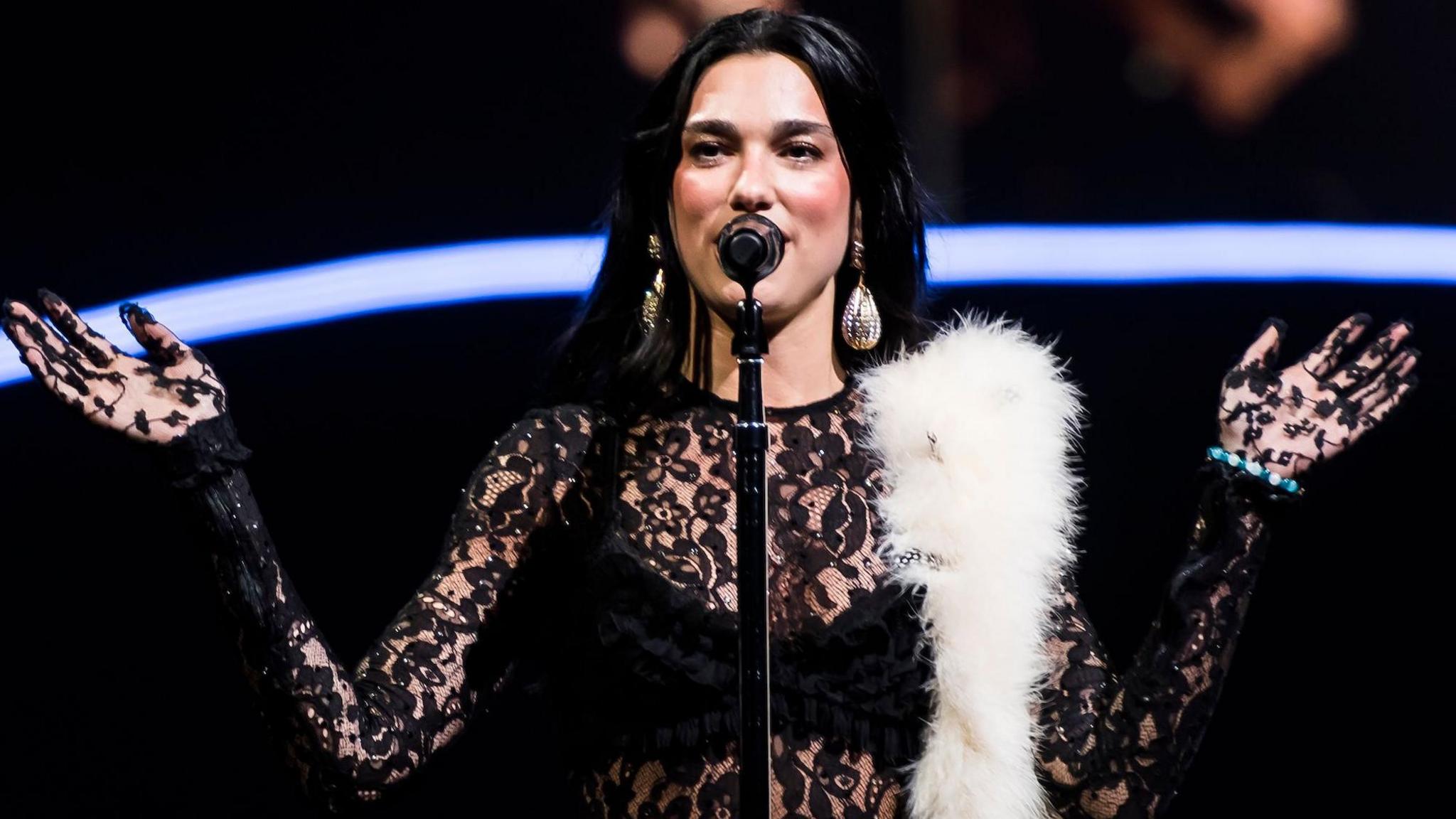Dua Lipa wins copyright case over Levitating

Dua Lipa is currently on the Australian leg of her year-long Radical Optimism world tour
- Published
Dua Lipa has won the dismissal of a lawsuit that accused her of copying her hit single Levitating from two other songs.
The star was sued in 2022 by songwriters L Russell Brown and Sandy Linzer, who accused her of plagiarising their 1979 disco track Wiggle and Giggle All Night, external and 1980's Don Diablo, external.
On Thursday, US Judge Katherine Polk Failla ruled that the songs only had generic similarities, including non-copyrightable musical elements that had also previously been used by Mozart, Gilbert and Sullivan, and the Bee Gees in their song Stayin' Alive.
It is the second time that Lipa has won a plagiarism case over Levitating, which was a global hit in 2020.
She was previously sued by Florida reggae band Artikal Sound System, who claimed Lipa ripped off the chorus for her song from their 2015 track Live Your Life, external.
Their case was dropped in 2023 after a judge ruled there was no evidence that Lipa and her co-writers had "access" to the earlier song - a key requirement in any copyright lawsuit.
However, she is still facing a third legal challenge over the song, from musician Bosko Kante - a featured artist on Levitating, who sang vocals through a talk box.
He sued in 2023, saying his contribution had been used on remixes of the song without permission.
Kante is seeking damages of at least $2m (£1.5m) plus interest, as well as profits from the remixes, which he estimated as being at least $20m (£15m).
Allow YouTube content?
This article contains content provided by Google YouTube. We ask for your permission before anything is loaded, as they may be using cookies and other technologies. You may want to read Google’s cookie policy, external and privacy policy, external before accepting. To view this content choose ‘accept and continue’.
Brown and Linzer's case alleged that Lipa stole the opening melody of Levitating, where she sings: "If you wanna run away with me, I know a galaxy and I can take you for a ride."
They called the melody and phrasing a "duplicate" of their own songs.
But Judge Failla wrote that the elements were too common to be protected by law.
"The court finds that a musical style, defined by plaintiffs as 'pop with a disco feel,' and a musical function, defined by plaintiffs to include 'entertainment and dancing,' cannot possibly be protectable," the judge wrote.
"To hold otherwise would be to completely foreclose the further development of music in that genre or for that purpose."
By coincidence, the ruling came on the fifth anniversary of Levitating's release, initially as an album track on Lipa's award-winning album Future Nostalgia.
In a statement to music industry publication Billboard, lawyers for Brown and Linzer said they "respectfully disagreed" with the decision and would file an appeal.
The BBC has contacted Dua Lipa for a response.